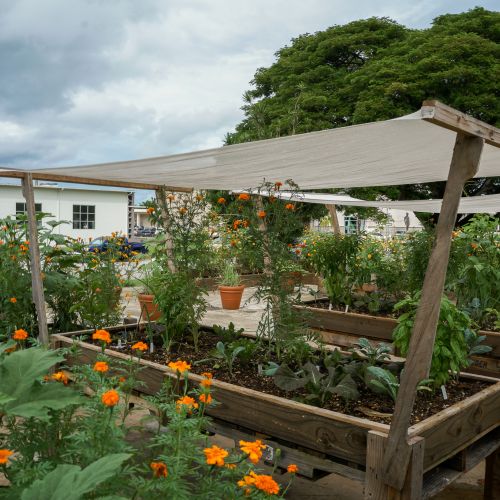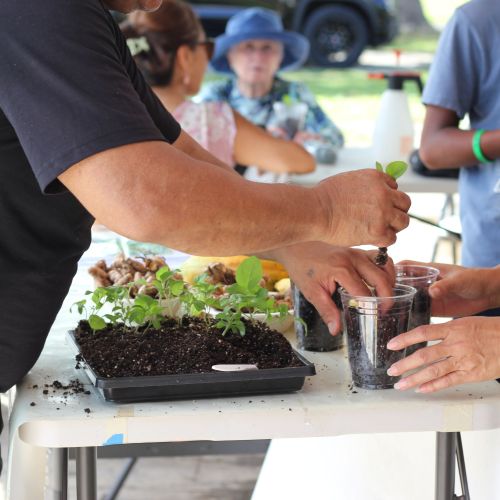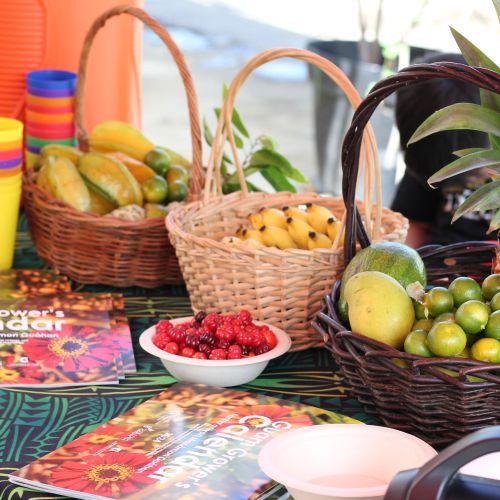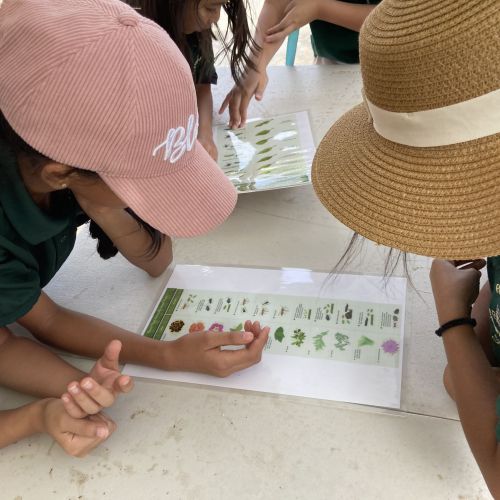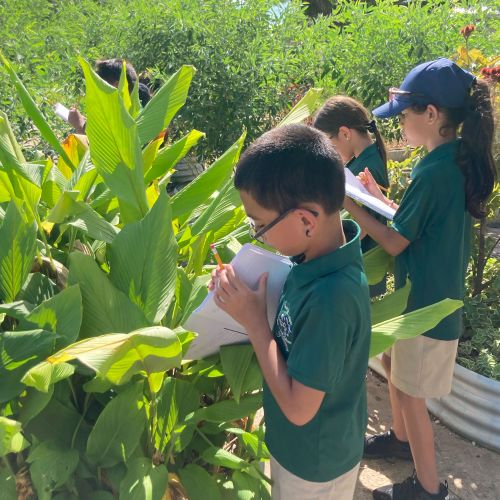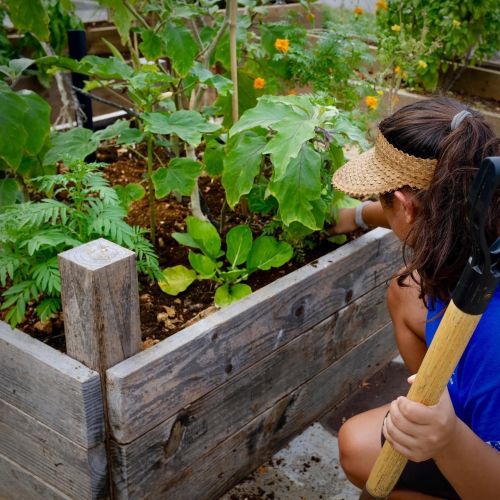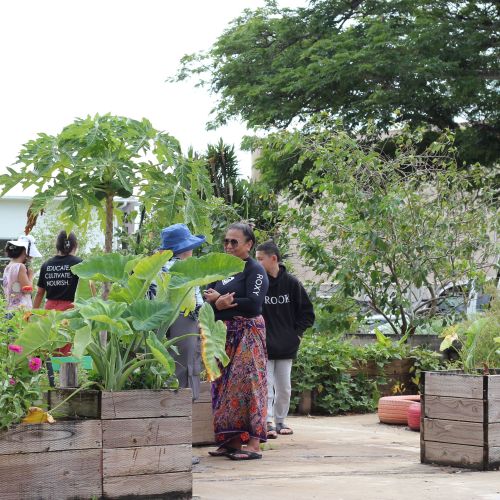About
Serving as an educational hub, the Hagåtña G3 Community Garden showcases innovative practices such as natural pest control, composting to divert waste from landfills, and cultivating diverse pollinator-friendly plants. This once underutilized urban space green space now contributes significantly to community health and food sovereignty by providing opportunities for physical activity, stress reduction, improved mental well-being through connection with nature, and direct involvement in local food production.
Program Details
Mission
The Hagåtña G3 Community Garden, a vibrant cornerstone of Guam's capital city, emerged from the collaborative efforts of the island-wide Guam Green Growth (G3) initiative. This public-private partnership, facilitated by the University of Guam's Center for Island Sustainability and supported by the Office of the Governor, aligns with the United Nations' Sustainable Development Goals. Designed and maintained by Guåhan Sustainable Culture (GSC), a non-profit organization dedicated to promoting sustainable practices and food security, the garden serves as a living laboratory for environmental sustainability and food sovereignty. Its mission is to cultivate sustainability, food security, and community well-being through hands-on education, innovative urban agriculture, and collaborative stewardship of shared green spaces while promoting physical and mental health through nature engagement and empowering the community to take control of its food system.
At its core, the Hagåtña G3 Community Garden showcases innovative practices such as natural pest control, composting to divert waste from landfills, and cultivating diverse pollinator-friendly plants. It serves as an educational hub, offering workshops and tours on topics ranging from food production to upcycling, focusing on engaging schoolchildren and community members in hands-on learning experiences. The garden transforms an underutilized urban space into a productive oasis that provides fresh, culturally appropriate produce for needy families and offers a serene retreat for visitors and residents alike. This green space contributes significantly to community health and food sovereignty by providing opportunities for physical activity, stress reduction, improved mental well-being through connection with nature, and direct involvement in local food production.
The garden serves a diverse population, including residents, schoolchildren participating in educational programs, families in need who benefit from produce donations, community volunteers interested in gardening and sustainability, visitors to Guam's capital seeking a peaceful green space, and individuals attending workshops on sustainable practices. Through its multifaceted approach, the Hagåtña G3 Community Garden is nurturing a more sustainable, food-secure, and connected community in the heart of Guam, contributing to local food sovereignty, environmental education, and public health for the broader Guam community. The garden fosters healthier lifestyles, more robust community bonds, and greater control over the local food system. It promotes access to fresh, locally-grown produce, provides a space for social interaction and physical activity, and empowers residents to grow their own food.
Staff Composition
- Education Programs Manager
- Garden Supervisors
- AmeriCorps GSC Staff and Members
- Community Volunteers
Contact Marlyn Oberiano marlyn@gusustainable.org (671) 687-6713 www.gusustainable.org
Services Offered
Educational Workshops and Tours
- Gardening workshops for local residents
- Guided tours and field trips for school groups on sustainable agriculture
Community Green Space
- Providing a peaceful area for meditation and stress relief for residents
- Hosting community gatherings and cultural events in the garden
- Volunteer opportunities for garden maintenance
Chamoru Language and Culture Preservation Activities
- Teaching residents how to grow culturally significant crops
- Labeling plants with their Chamoru names to promote language learning
- Hosting workshops on traditional Chamoru farming practices and their modern applications
Cost to Participate
Most programs at the garden are free and made possible by various grants from the government, private foundations, and donations from community members.
Ongoing Research
In 2021, with funding from Humanities Guahan and the National Endowment for the Humanities, GSC launched its project titled Ginen i Gualo’—Histories of Farming and Agriculture on Guåhan. The project provides the island’s community with knowledge of past and current agricultural practices, preserves and shares stories of our island’s local farmers, and, most importantly, encourages profound connections to the land and island. The project can be viewed at https://www.gusustainable.org/ginenigualo
